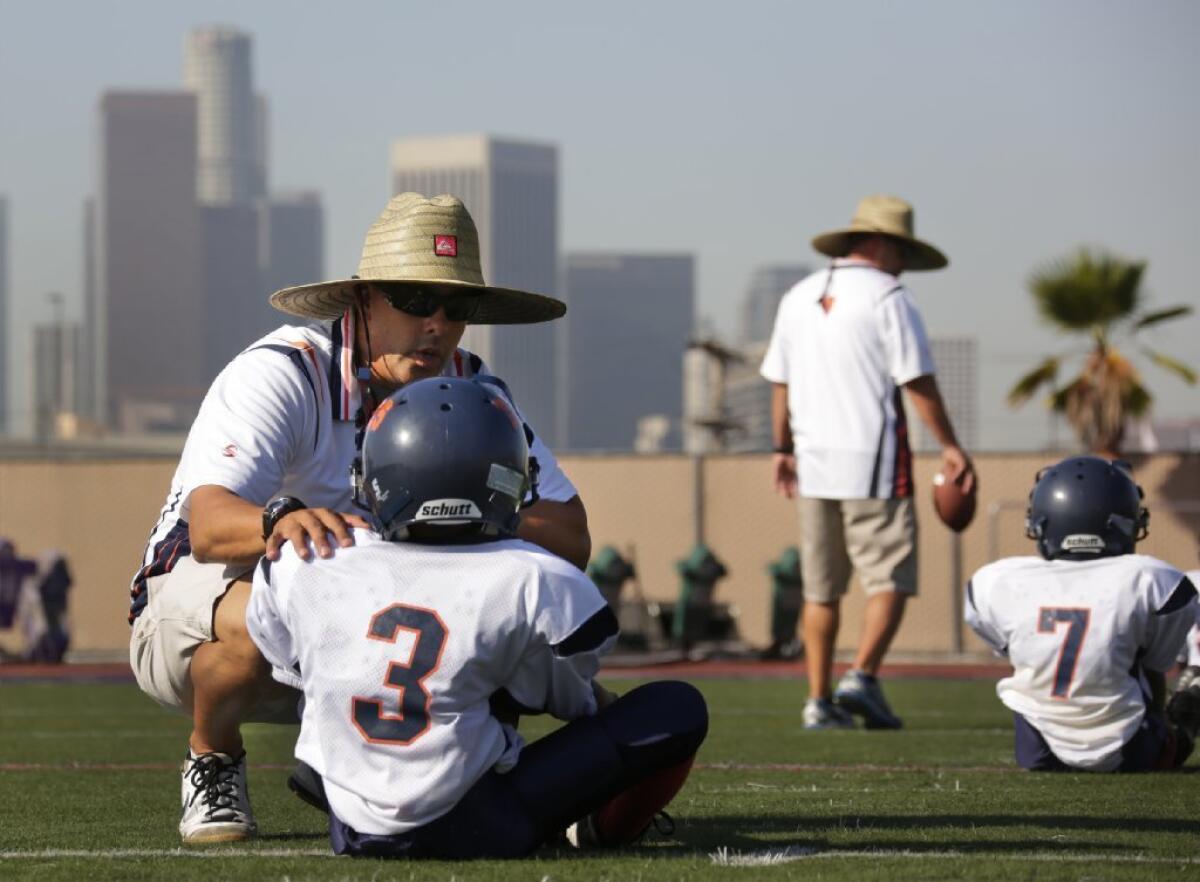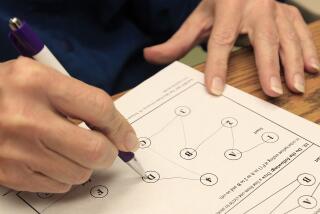Sideline concussion test gets a new thumbs-up

- Share via
A screening test for concussion that can be performed quickly on the sidelines was able to detect mild traumatic brain injury in about 4 in 5 college athletes who had sustained a concussion, a forthcoming study has found.
The King-Devick test capitalizes on a subtle but important symptom of brain injury: a disruption in the eyes’ ability to travel smoothly across a page, and to shift direction upon the brain’s command.
In a new study conducted on male and female athletes at the University of Florida, most subjects who took the King-Devick test soon after suffering a concussion showed reductions in speed and accuracy that were marked enough to reveal mild traumatic brain injury.
When results of the King-Devick test were combined with two more comprehensive tests for concussion, researchers said they were able to detect 100% of 30 concussions that occurred over a single season among 217 subjects. The study participants were members of the University of Florida’s men’s football, women’s lacrosse and women’s soccer teams.
The King-Devick test is remarkably simple: the test-taker is asked to read, fast and accurately, several pages of single-digit numbers that are arrayed left to right in columns that don’t vertically align. The test requires smooth and steady eye movement across and down the page, as well as concentration, the rapid recognition of numbers and fast language production. Some or all of these can be compromised by a concussion, making the test a good measure of, at least, whether an athlete should be removed from play and professionally assessed for concussion.
The findings, which remain preliminary until published, are to be presented in late April in Philadelphia at the American Academy of Neurology‘s annual meeting. The team conducting the research was led by New York University/Langone Medical Center neurologist Dr. Laura J. Balcer.
To establish a baseline for an individual’s performance on the test, the King-Devick screening must first be conducted when the individual is healthy and well-rested, and away from the field (and while baseline tests are best done by a professional trained in neuropsychiatric testing, the King-Devick test is easy enough to administer that even a parent could do it). After that, the screening test can be administered in just a couple of minutes on the side of a playing field, using a flip-chart or an electronic tablet.
An athlete who has sustained a blow to the head that is likely to result in concussion typically will be unable to match his or her baseline speed and accuracy on the test.
Balcer said that having a reliable, quick and easily administered test available to evaluate an athlete is especially important because many are unwilling to acknowledge - or unable to detect - the confusion.







